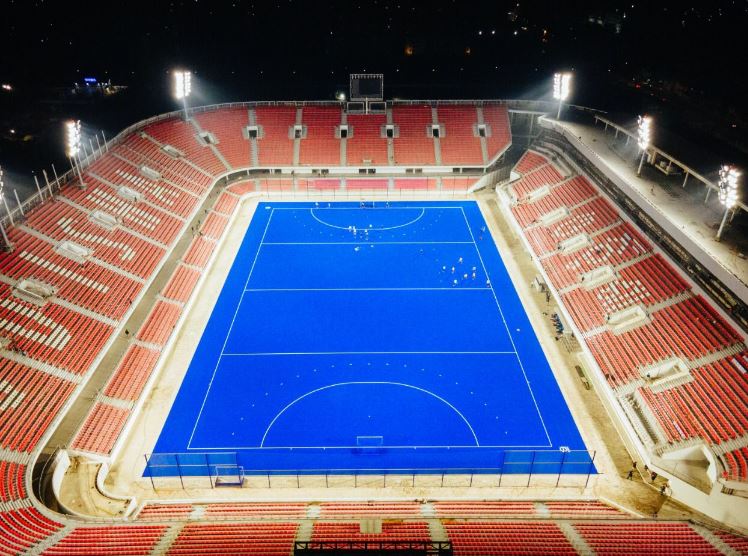Rourkela: The razzmatazz of the coming Men’s Hockey World Cup has not touched remote Saunamara, the ancestral village of legendary player Dilip Tirkey, in the hinterland of Sundargarh, which is considered the cradle of the game.
The interest in hockey is high among the people in this western Odisha village. A game here involves not only the youths but senior citizens too who use worn out sticks and even makeshift ones with enviable technical finesse.
Asked about the reason for the overwhelming popularity of the game, a local said, “It is because the game is our culture. Can you leave behind your culture and grow and live peacefully? Sundargarh and not Punjab is now called the cradle of hockey in India.”
The game is rigourously practiced for the locally popular khasi (goat) tournaments played by local clubs. The name is self explanatory – the winning side wins the goat and the village later on feasts on mutton.
He is echoed by Amulya Kumar Bihari, a former state level coach. “Sundergarh could never have become a cradle without hockey being in the genes of its people and in their culture. You can’t separate hockey from the people of Sundargarh like you cannot separate football from the South America.”
Florencia Ekka, a woman coach from Saunamara who now trains talents at Dhenakanal, shares the same feeling.
“For us hockey is religion and a cultural practice. It is in the blood of the people of Sundergarh, in their minds and is part of their daily activity,” she said.
Raju Saini, the coach at SAIL Hockey Academy who hails from Meerut, relates an amusing story to stress the point.
He recounts a wedding he had attended in the residence of one of trainees where a hockey match was played between the families of the bride and groom and four dozen cocks were kept as prize and was called ‘Prem Bhoj (love feast)’. “I was stunned … I told myself that it is impossible for this place not to produce international players in large numbers consistently given the level of penetration of hockey in the lives of its people.”
All the coaches agreed that a few common traits among the tribals have earned Sundergarh the tag of a hockey cradle.
“They (the tribals) are determined and obidient by nature,” said Bihari. “It is not only their way of life, they are diligent too,” commented Ekka.
Saini said the tribal hockey players totally abide by their coaches. “It is something like the age-old guru and sishya parampara.”
He finds imprints of their dancing in the footwork for their defence and tackling styles.
For Bihari their close bonding helps in making good defenders.
The district has presented the country with a number of stars of the game – Dilip Tirky, Lazarus Barla, Peter Tirky, the first Odia tribal to represent the country in the junior national team, Silanand Lakra, Amit Rohidas and Sudhir Chirmaku.
The list of women hockey stars from the district is impressive too. The prominent among them are Subhadra Pradha, Jyoti Sunita Kulu, a former women’s hockey team captain, Deepgrace Ekka, Namita Toppo and Lilima Minz.
Sociologist Samarendra Mohanty said “Sundargarh is the cradle of Indian hockey because the tribal players are persistent, obedient, are able to pick up the game’s nuances quickly and adapt to modern techniques with elan. When so many things come in a single package they naturally flourish.”
Sundergarh has now surged ahead of Sansarpur, Punjab and Coorg, which were once bastions of hockey, he claimed adding the lure of decent jobs because of their prowess has added to the interest of the tribals in the game.
Odisha has three academies for hockey, of which two are situated in Sundergarh.
The state will host the Men’s Hockey World Cup January 13-29 and will be played out in Kalinga Stadium in Bhubaneswar and Birsa Munda Stadium in Rourkela.
PTI
